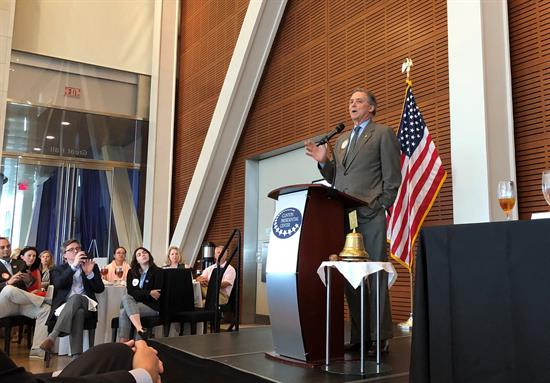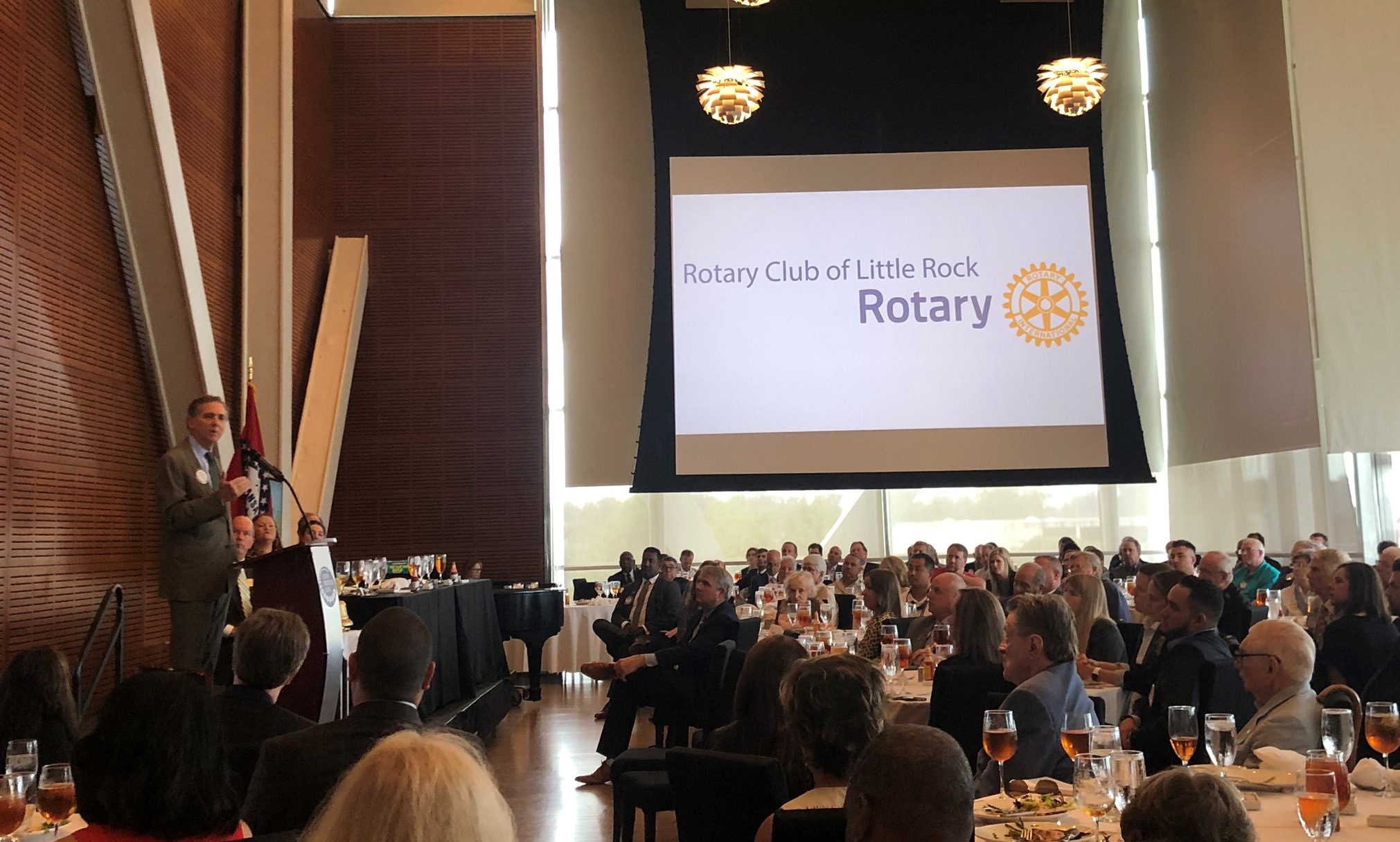Rep. Hill on Workforce Enhancement: How We Grow Our Workforce and Expand Its Effectiveness
Washington,
August 13, 2019
Tags:
Jobs and Economic Growth
Framework for Reform Our first strategy should be to offer all students an opportunity for the pursuit of happiness. That is, we must provide curricula that is enriching and allows those students who are college-bound to excel and be prepared to do college-level work while at the same time altering career tracks that allow a non-college-bound student to select a profitable successful apprenticeship or career track upon graduation. School districts must also offer concurrent credit for high school students – advanced placement courses for those headed to college and career-enhancing certificates for those headed to work. Arkansas is filled with great examples of these type strategies. For example, Greenbrier High School's innovative approach blends advanced placement and concurrent credit courses to ensure that students get the most out of their honors experience. For students who complete at least 60 hours of concurrent credit courses, they are eligible to earn an Associate of Arts degree from UALR. Two new approaches that are currently in development include the Saline County Career Technical Campus, which has been jointly designed by the seven school districts in that county; and the new approach being taken by the North Little Rock, Little Rock, Jacksonville/North Pulaski, and Pulaski County school districts which is the innovative Ford Next Generation Learning (NGL) approach that is sponsored by the Ford Motor Company Fund. NGL is a community-driven educational approach proven to increase students’ educational and career outcomes by engaging educators, community leaders, and employers. The point is that all students in all jurisdictions need to have this concurrent track strategy in order to increase student achievement, reduce dropout rates, and better inspire students to the pursuit of happiness upon graduation. Likewise, post-secondary strategies should be enhanced with both two- or four-year degrees with an apprenticeship and employment attached. This sort of partnership with the private sector is what's behind the Arkansas State Chamber of Commerce’s “Be Pro, Be Proud” initiative where the state chamber is educating middle school and high school students about career opportunities upon graduation from high school. Shifting Back to Society Each year Arkansas releases 10,000 people from state incarceration. These parolees face immense barriers. When a to-be-released person is involved in a transitional program combined with drug and alcohol treatment and skills training, the recidivism rate is low, around 10 to 15 percent. However, for those who don't participate in any kind of a transitional program and who don't have a skill or remain drug- and alcohol-addicted, the recidivism rate after three years is closer to 60 percent. Concrete strategies at the state level as well as the First Step Act that President Trump signed into law on December 21, 2018, are critical to potentially boosting career readiness for those exiting incarceration. Long before I was in Congress, I was impressed by the work of Dr. Fitz Hill, the former president of Arkansas Baptist College, and Dr. Jerome Green of Shorter College. Both were finding innovative ways to bring education to those in prison and those on the brink of being released. That inspirational work by Doctors Hill and Green led me to design and introduce the Shift Back to Society Act. The bill would establish a pilot program to provide grants to Historically Black Colleges and Universities (HBCUs) to implement educational programs for eligible offenders and help them successfully transition back into their communities. Like those shifting back to society from incarceration, our brave, humble veterans who transition back to civilian life face many obstacles to productive civilian employment. We need to streamline this at the state level so that our veterans can go to work faster. Getting Americans Back on their Feet Senator Tom Cotton and I, over the last four years, have introduced legislation, the Social Security Disability Insurance (SSDI) Return to Work Act, which offers an efficient and consistent path back into the workforce by modernizing the Social Security Administration's classification of disability beneficiaries and providing incentives to return to work for those who have recovered. The SSDI is critical to states like Arkansas where nearly 300,000 citizens rely on the program. This is a key area at the federal level where we can encourage and help people get back on their feet and get back to the joy and reward that work provides. Arthur Brooks, former president of the American Enterprise Institute tells us, "[w]e feel a sense of dignity when our own lives produce value for ourselves and others." With this in mind, I ask you now: How do we maximize the inherent dignity that all Americans are born with? How do we ensure a better life for our children? My friends, we do that by providing hope, giving people opportunity and giving people reasons to go to work and be self-sufficient and recognize that all there is dignity in all work. |




